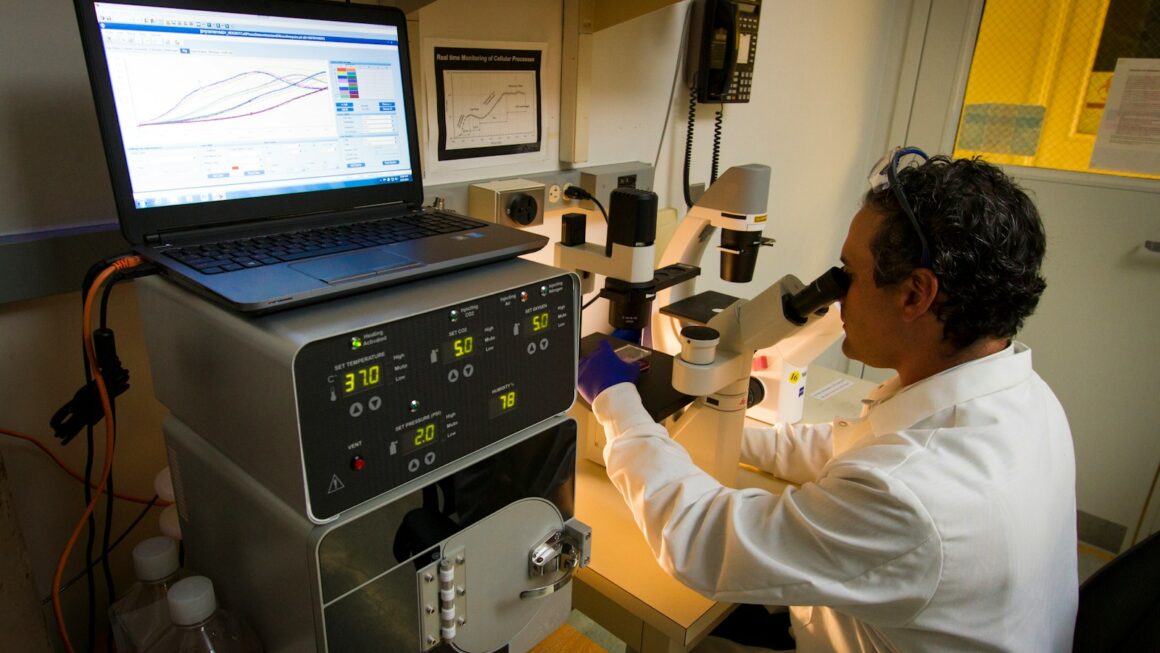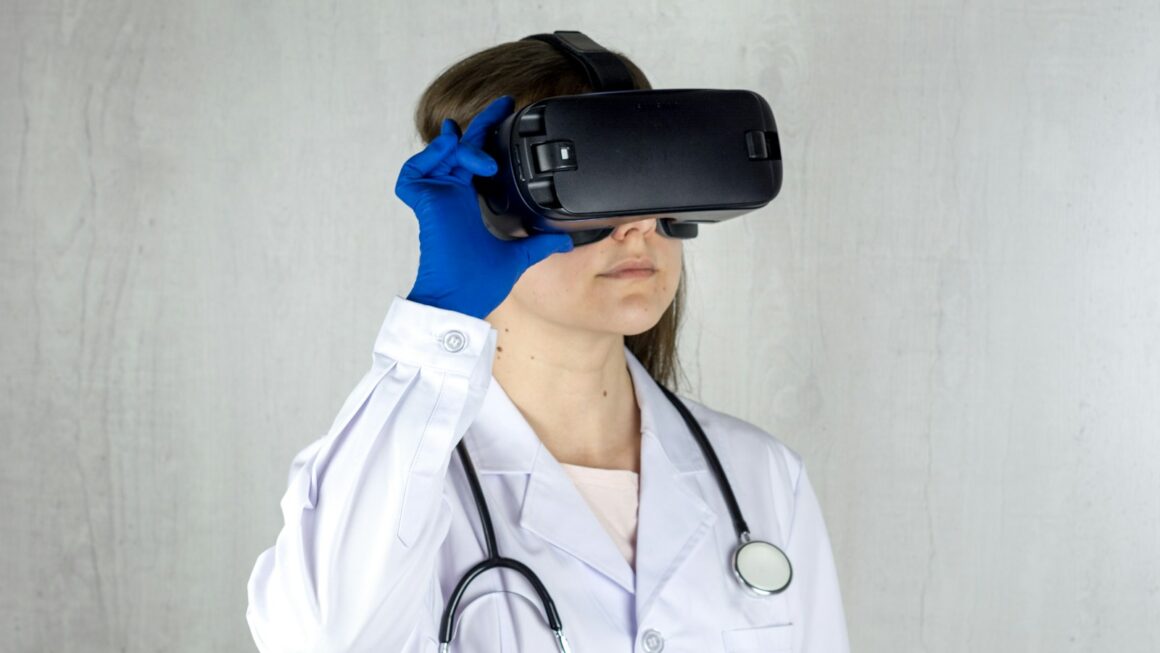Recent advancements in cancer treatment have transformed the landscape of patient care, offering new hope and improved outcomes for individuals facing this challenging disease.
From targeted therapies that attack specific cancer cells to immunotherapies that harness the body’s immune system to fight cancer, the field of oncology is witnessing unprecedented progress in treatment options.
Additionally, groundbreaking developments in precision medicine have enabled healthcare providers to tailor treatment plans to each patient’s unique genetic makeup, leading to more effective and personalized care. With the integration of cutting-edge technologies and innovative research, the future of cancer treatment is bright, promising enhanced quality of life and increased survival rates for patients around the world.
Innovative Gene Therapy Approaches for Genetic Disorders
Gene therapy is revolutionizing the treatment of genetic disorders by offering a unique and promising approach to addressing underlying genetic abnormalities. The innovative techniques in gene therapy involve introducing functional genes into the body to replace or supplement defective genes, ultimately restoring normal cellular function. This novel approach holds significant potential for treating a wide range of genetic disorders that were previously considered incurable.
The rapid advancements in gene editing technologies, such as CRISPR-Cas9, have enabled scientists to precisely target and modify specific genes associated with genetic disorders with unprecedented accuracy. This level of precision not only enhances the effectiveness of gene therapy but also minimizes the risk of off-target effects, ensuring the safety and efficacy of treatment. With continued research and development in the field of gene therapy, there is great optimism for the future of personalized medicine and improved outcomes for individuals affected by genetic disorders.
Revolutionary Stem Cell Therapies for Chronic Diseases
Stem cell therapies have emerged as a promising treatment approach for chronic diseases, offering new avenues for improved patient outcomes. By harnessing the regenerative potential of stem cells, researchers and clinicians are exploring innovative ways to address conditions that were once considered untreatable. These therapies have the potential to not only alleviate symptoms but also target the underlying causes of chronic diseases, paving the way for more effective and long-lasting solutions.
Through advancements in stem cell research, scientists are uncovering the diverse applications of these powerful cells in the treatment of a wide range of chronic conditions. From neurological disorders to cardiovascular diseases, stem cell therapies are being tailored to suit the specific needs of individual patients, offering a personalized approach to healthcare that holds immense promise. As ongoing research continues to refine these therapies, the potential for stem cells to revolutionize the management of chronic diseases remains a compelling area of study and development in the field of regenerative medicine.
Breakthrough Immunotherapy Advancements in Cancer Treatment
One of the most promising advancements in cancer treatment is the development of breakthrough immunotherapy strategies. Immunotherapy works by harnessing the power of the body’s own immune system to target and destroy cancer cells. This approach has shown significant success in treating various types of cancer, particularly in cases where traditional treatments have been ineffective.
By boosting the immune system’s ability to recognize and attack cancer cells, immunotherapy offers a more targeted and potentially less harmful alternative to conventional treatments like chemotherapy and radiation therapy. In some cases, immunotherapy has even resulted in long-lasting remissions and improved quality of life for cancer patients. As researchers continue to refine and expand upon these breakthrough treatments, the future of cancer care looks increasingly promising.
Groundbreaking Precision Medicine Techniques for Personalized Care
Precision medicine is transforming the landscape of healthcare by tailoring treatment plans to the individual characteristics of each patient. By utilizing advanced genetic testing and molecular profiling, healthcare providers can identify specific genetic alterations or biomarkers that inform the selection of targeted therapies. This personalized approach enables more effective and efficient treatments, minimizing unnecessary side effects and improving patient outcomes.
Furthermore, precision medicine techniques allow for the prediction of potential drug responses and disease progression based on individual genetic variations. This level of customized care empowers healthcare professionals to make informed decisions that are personalized to each patient’s unique genetic makeup. With the continued advancement of precision medicine technologies, the future of healthcare holds great promise in delivering more effective, individualized treatments for patients worldwide.

Advanced Robotic Surgery Techniques Improving Patient Outcomes
Robotic surgery has revolutionized the field of medicine, offering a precise and minimally invasive approach to various surgical procedures. The advanced robotic systems provide surgeons with enhanced dexterity and visualization, allowing for more accurate incisions and maneuvers during operations. This precision contributes to reduced blood loss, shorter recovery times, and decreased post-operative pain for patients undergoing robotic-assisted surgeries.
Furthermore, the improved patient outcomes associated with advanced robotic surgery techniques can lead to shorter hospital stays and faster return to normal daily activities. The integration of robotic technology in surgical procedures has demonstrated higher efficiency in complex surgeries, such as prostatectomies and hysterectomies, ultimately translating to better surgical outcomes and quality of life for patients. These advancements in robotic surgery techniques continue to shape the landscape of modern healthcare by pushing the boundaries of surgical precision and patient care.
State-of-the-Art Neurostimulation Therapies for Chronic Pain Management
Neurostimulation therapies have emerged as a cutting-edge approach in the management of chronic pain. By targeting specific areas of the nervous system, these therapies offer a promising alternative for patients who have not responded well to traditional treatment methods. Through the strategic delivery of electrical impulses, neurostimulation aims to modulate pain signals and provide relief to individuals suffering from a variety of chronic conditions.
The effectiveness of neurostimulation therapies lies in their ability to disrupt pain pathways and restore normal function to the nervous system. By precisely targeting the source of pain, these state-of-the-art treatments offer patients a non-invasive and drug-free option for managing their symptoms. As researchers continue to refine and innovate upon existing neurostimulation techniques, the field holds great potential for revolutionizing the way chronic pain is treated and improving the quality of life for many individuals.
Novel Drug Delivery Systems Enhancing Treatment Efficacy
One of the most promising developments in modern medicine lies in the realm of novel drug delivery systems. These innovative approaches have the potential to drastically enhance treatment efficacy in various medical conditions by precisely targeting specific diseased tissues or cells while minimizing systemic side effects. By harnessing the power of advanced technologies and creative formulations, drug delivery systems are paving the way for more efficient and tailored therapies for patients.
The beauty of these novel drug delivery systems lies in their ability to overcome traditional barriers in drug administration, such as poor bioavailability and off-target effects. Through smart design and meticulous engineering, these systems offer a means to deliver medications directly to the intended site of action, increasing therapeutic concentration at the target and sparing healthy tissues from unnecessary exposure. This level of precision not only boosts treatment outcomes but also enhances patient compliance and comfort, heralding a new era of personalized and effective medical interventions.
Innovative Artificial Intelligence Applications in Medical Diagnostics
Artificial intelligence (AI) has increasingly been integrated into medical diagnostics, offering a plethora of innovative applications that are transforming the way diseases are detected and diagnosed. Through machine learning algorithms, AI can analyze vast amounts of medical data quickly and efficiently, leading to more accurate and timely diagnoses. These AI systems have demonstrated remarkable capabilities in identifying patterns and anomalies that may not be easily discernible by the human eye, thereby enhancing diagnostic accuracy and aiding healthcare providers in making informed decisions for their patients.
Furthermore, AI-driven medical diagnostics have the potential to revolutionize personalized medicine by tailoring treatment plans to individual patients based on their unique characteristics and medical history. By leveraging AI technologies, healthcare professionals can access predictive analytics that help forecast disease progression and recommend the most effective treatment strategies. This not only streamlines the diagnostic process but also improves patient outcomes through targeted interventions that are customized to each patient’s specific needs. The integration of AI in medical diagnostics heralds a new era in healthcare, where precision and efficiency converge to advance patient care to unprecedented levels.
Next-Generation Biomedical Engineering Innovations for Improved Healthcare
Biomedical engineering continues to push the boundaries of healthcare by developing cutting-edge technologies that revolutionize patient care. These innovations merge principles of engineering and life sciences to create solutions that improve diagnosis, treatment, and overall patient outcomes. From wearable devices that monitor vital signs in real-time to implantable medical devices that deliver targeted therapies, the field of biomedical engineering is at the forefront of advancing healthcare.
The integration of advanced imaging techniques, such as MRI and CT scans, with computational modeling and simulation tools, allows for more precise and personalized treatment strategies. Additionally, the development of tissue engineering approaches enables the regeneration of damaged tissues and organs, offering new hope for patients with debilitating conditions. As biomedical engineers collaborate with healthcare professionals to address complex medical challenges, the future of healthcare looks brighter than ever before.



